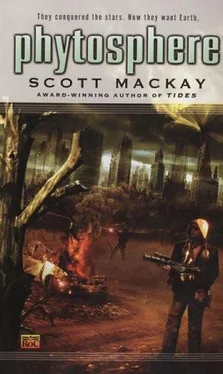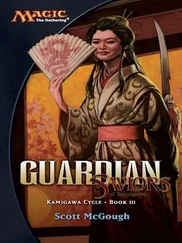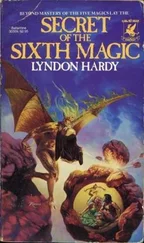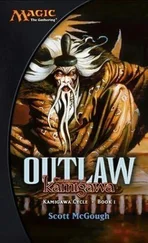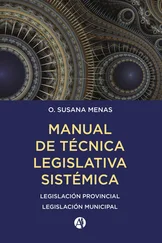Darkness came an hour later. The fighting drew closer. His daughters looked up at the narrow windows, their faces apprehensive. He heard men yelling outside. And then he felt vibrations through the tile floor.
A second later he heard the squeaking of tank treads, then a wild cracking from the squash courts. Dust floated down from the windowsills as it was shaken loose. The water in the pool vibrated. And at last the wall that separated the pool from the squash courts bent toward them, the bricks coming apart as if they were made of marshmallows, then collapsing; first just a hole ten feet up as the tank’s main cannon came through, then a wide area below as the front part of the tank shouldered its way in.
The roar echoed through the pool area. The girls cried out and, instinctively, Neil grabbed Louise and shoved her to the floor. The tank came forward and ground its way right into the shallow end of the pool, the hot metal of its engine compartment hissing and steaming, its turret swiveling away from them toward the dressing rooms.
Several enemy airmen came in behind the tank.
The tank pivoted on its right track, turned toward the dressing rooms, then proceeded forward, its treads catching the far lip of the shallow end and pulling the armored vehicle out of the water. The tank then plowed right into the wall and continued on through the dressing rooms, eating through the Officers’
Club the way a termite eats through wood. Gunfire erupted from the direction of the dressing rooms, and bullets rocketed into the pool area. The enemy airmen took up positions on either side of the pool. The airmen saw them but seemed to realize they were noncombatants, and left them alone.
Neil gathered his family and got them on their stomachs behind the diving tower. He glanced at Morgan.
The corners of the young girl’s lips were drawn so that he could see her bottom teeth, and she looked determined to bolt regardless of the danger. Ashley was breathing fast and looking as white as paper.
Louise stared at her own clenched fists as if she didn’t want to see what was going on.
Melissa was looking at the windows high on the wall behind them. He saw in her eyes some of his own bold confidence. “Dad, I think I hear the helicopter.”
A moment later, he heard it himself, the blup-blup-blup-blup of the rotor chopping the air, Lenny getting closer and closer, even as things broke down at Homestead. He saw the emergency exit at the back.
And while he knew it was a risk to get up from their cover behind the diving platform, he realized the situation was getting worse as the opposing sides fought for control of the food supply in the courtyard.
“All right, listen to me!” He pointed. “On my count, we run for the door!”
“Dad, what if it’s locked?” asked Melissa.
She had a point.
“I’m going to check it. When I wave you over, run like hell.”
He crawled on his stomach across the tiles to the door. He reached up, pressed the panic bar, and the door opened. He heard the helicopter even louder now. Florida smelled like rotten hay. More bullets rocketed into the pool area. He waved his family over.
Louise and the girls ran in his direction. But then Morgan slipped on the tiles. She went down, clutching her ankle, and started crying.
“Go on, go on!” he told the others.
“Get her!” cried Louise.
“Just go!”
They went out, and he returned to rescue Morgan.
He gripped her by her shirt and dragged her across the tiles like a hundred-pound sack of potatoes.
As he reached the door, a deafening boom resounded throughout the pool area—the tank firing its cannon somewhere beyond the ruins of the dressing rooms.
The air was now choked with dust. He pulled Morgan out the door, and the heat of the Florida night, super-charged because of the phytosphere’s heat-trapping ability, settled over him like an electric blanket on high.
The helicopter came two minutes later, its landing lights bright in the darkness. He squinted in the dust the rotor kicked up. The helicopter’s side door slid back and he saw a fully armed airman kneeling there, ready to help him. But where was Greg? The airman waved them over.
“Let’s go!” Neil shouted to his family.
They ran to the helicopter.
The airman said, “Dr. Thorndike?”
“Are you Lenny?”
“Get in.”
“What about Colonel Bard?”
“He’s not with you?”
“No.”
“Then we’re going to have to leave without him. This area’s too hot. Get in.”
So. That’s how it would be.
He lifted Morgan into the helicopter, and helped Louise in as well. Lenny gave both Melissa and Ashley a hand up.
Neil stood there with his hands against the helicopter. And now it really did feel like failure. Because not only had he failed the whole world, he had failed his friend. He climbed into the helicopter. His wife was staring at him. Louise knew exactly what he was feeling. She reached out and touched him. He tried to give her a reassuring smile, but it simply wasn’t in him.
Lenny lifted his finger into the air and twirled it a few times. The pilot worked the manuals and the helicopter rose.
As it climbed higher and higher, Neil got a better view of the Officers’ Club. An intense firefight raged in the courtyard. He saw muzzle flashes and tracer bullets. Someone had set the food on fire, and in the light of this fire he saw the tank. One man stood off to the side. This man X-ed his arms toward the helicopter, and Neil thought he must be Greg Bard. But before he could get a better look, Lenny slid the door shut and the helicopter banked, then nosed north toward Marblehill.
Kafis came once more to the Moon, this time with dire news.
The alien phrased it to the gathered members of the committee the way he phrased everything, as if he were a Buddhist monk talking to his disciples. Gerry stared at Kafis in growing alarm. The Tarsalan spoke of the loss of the phytosphere control device in terms of games theory, and said that they had used a Tarsalan mathematical method of decision-making when choosing the phytosphere as one of their teaching tools. Unfortunately they had never factored into the computational framework the notion that humans might inadvertently destroy the device with a surfeit of firepower.
“So it’s gone?” asked Gerry, speaking out of turn because technically he was just an observer now.
“It’s degraded to the point where it can’t be used in either augmenting or dissipating the phytosphere.
Left on its own, the phytosphere will continue to grow.”
Malcolm Hulke rephrased. “So you have no way of turning it off?”
“Your people have robbed us of this option, yes. As a teaching tool, it has failed. We take our failure with humility. And we express our deepest apologies to the people of Earth.”
Gerry stared at Kafis in wonderment. “You destroy a whole world and the only thing you have to offer is an apology?”
“It is you who have chosen to destroy yourselves. We could have lived in peace. These principles of property you hold so dear…so that you think you can say who owns what, and who can come to your world and who must stay away…this is an erroneous path you have followed.”
“Fathead is speaking bullshit,” said Ian Hamilton. Kafis’s pupils opened a notch as he regarded the test pilot. “It’s our planet. We get to say who’s welcome.”
“Yes, but is Earth rightfully yours? Is it rightfully anybody’s? There are thousands of species on your planet. How can you say it belongs to just humans?”
“There are over twelve billion people on Earth,” said Gerry. He couldn’t help thinking of his wife and children. “And now they’re all going to die.”
Читать дальше
